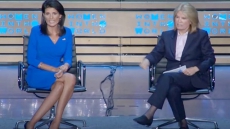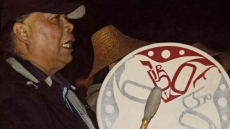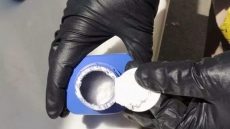VANCOUVER — Canada is more likely to reach a lasting solution for the softwood lumber trade dispute with the United States now that President Donald Trump is in power instead of Barack Obama, says British Columbia Premier Christy Clark.
Speaking to a forestry conference in Vancouver on Friday, Clark said the new president has a background in construction and understands the impact the cost of materials has on a finished product.
It would have been hard to do any worse than the previous president when it comes to softwood lumber, she added.
"My experience has been that the Obama administration was not particularly interested in getting a softwood deal," Clark told reporters after delivering her keynote address.
"I mean, they talked a nice talk and they put out nice press releases, but in all that time there wasn't any real progress to getting a deal."
The softwood lumber trade dispute has been a thorn in the side of federal and provincial governments for decades. The issue flared up again in late 2015 after the expiry of a nine-year agreement that had quelled the discord.
American lumber producers are pushing for their government to restrict trade on Canadian imports that they claim are unfairly subsidized.

Kirsten Hillman, Canada's top negotiator in the softwood lumber trade dispute, also spoke at the Council of Forestry Industries' annual convention Friday, saying bilateral talks on the issue have waned since Trump took office.
But the setback has more to do with the new administration having yet to appoint some of the key players to work on the file, she added.
"There was an active period at the end of the Obama administration when we were ... working on this quite intensely," Hillman said.
"Unfortunately, right now, with the change of administration, there isn't as much of a conversation happening."
Hillman said reaching a stable, predictable and fair agreement is one of the Canadian government's top priorities.
B.C. has a large stake in the softwood lumber negotiations. The U.S. accounts for nearly 70 per cent of Canada's softwood lumber exports, more than half of which come from B.C., Hillman said.
The province appointed David Emerson, former federal minister, to represent B.C. as its trade envoy in softwood lumber dealings.
Emerson helped create the 2006 Softwood Lumber Agreement and spoke candidly at Friday's conference about the seemingly intractable issue.
"We are dealing with what you could probably call a hearty perennial, but I think you could more accurately refer to it as a mutating form of bacteria that has become all but antibiotic resistant," he said, to laughter from the audience. "And that's kind of where we are today."





